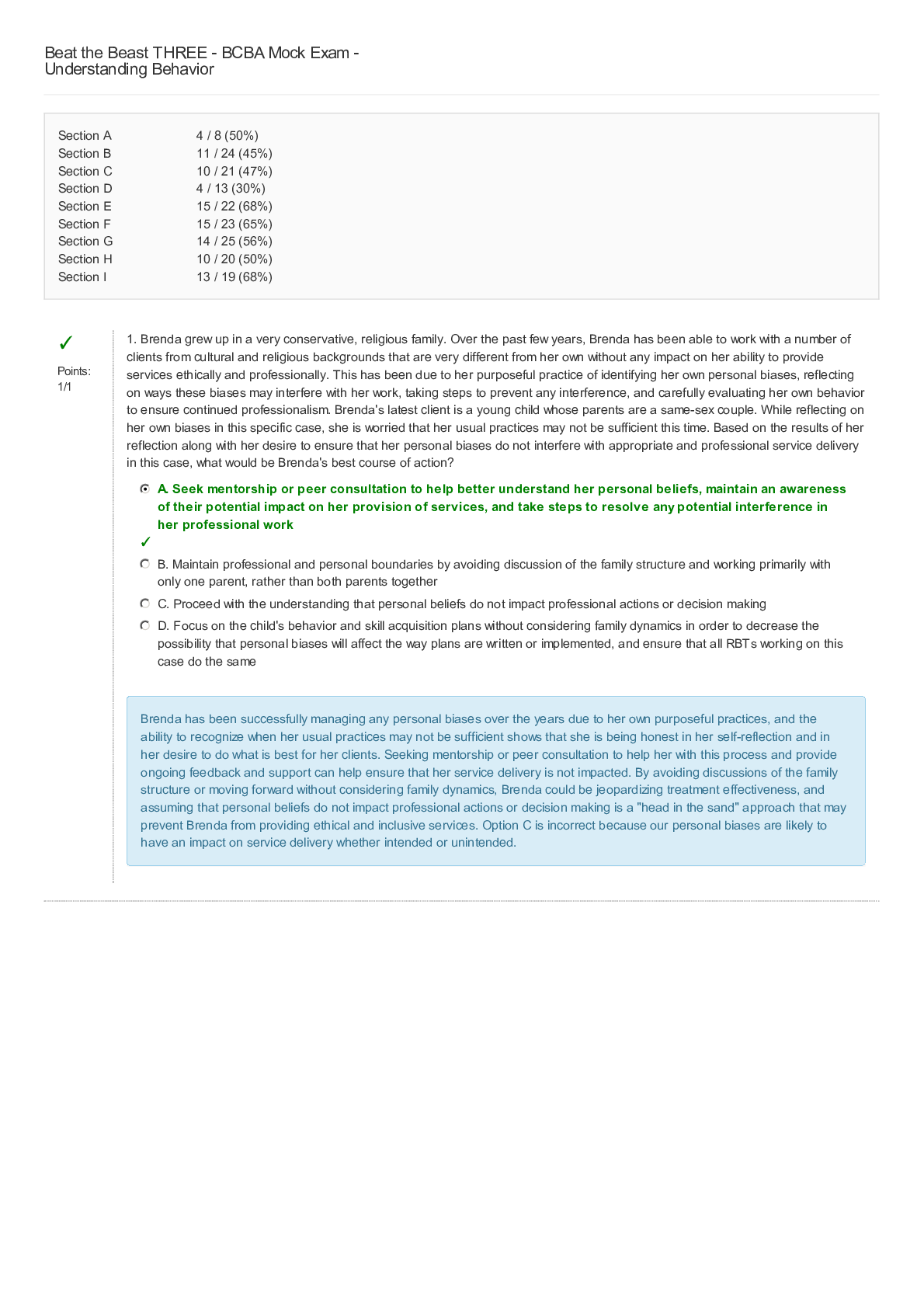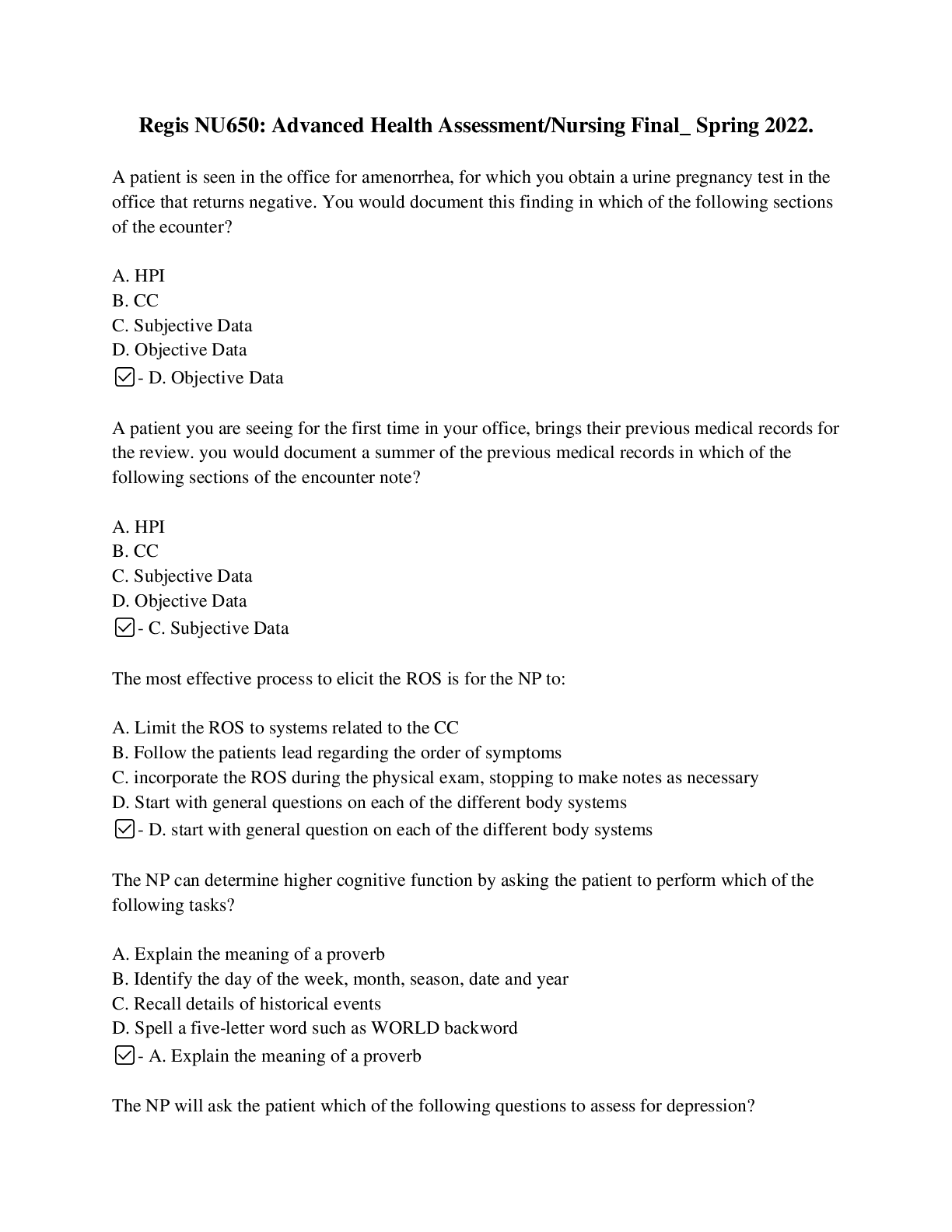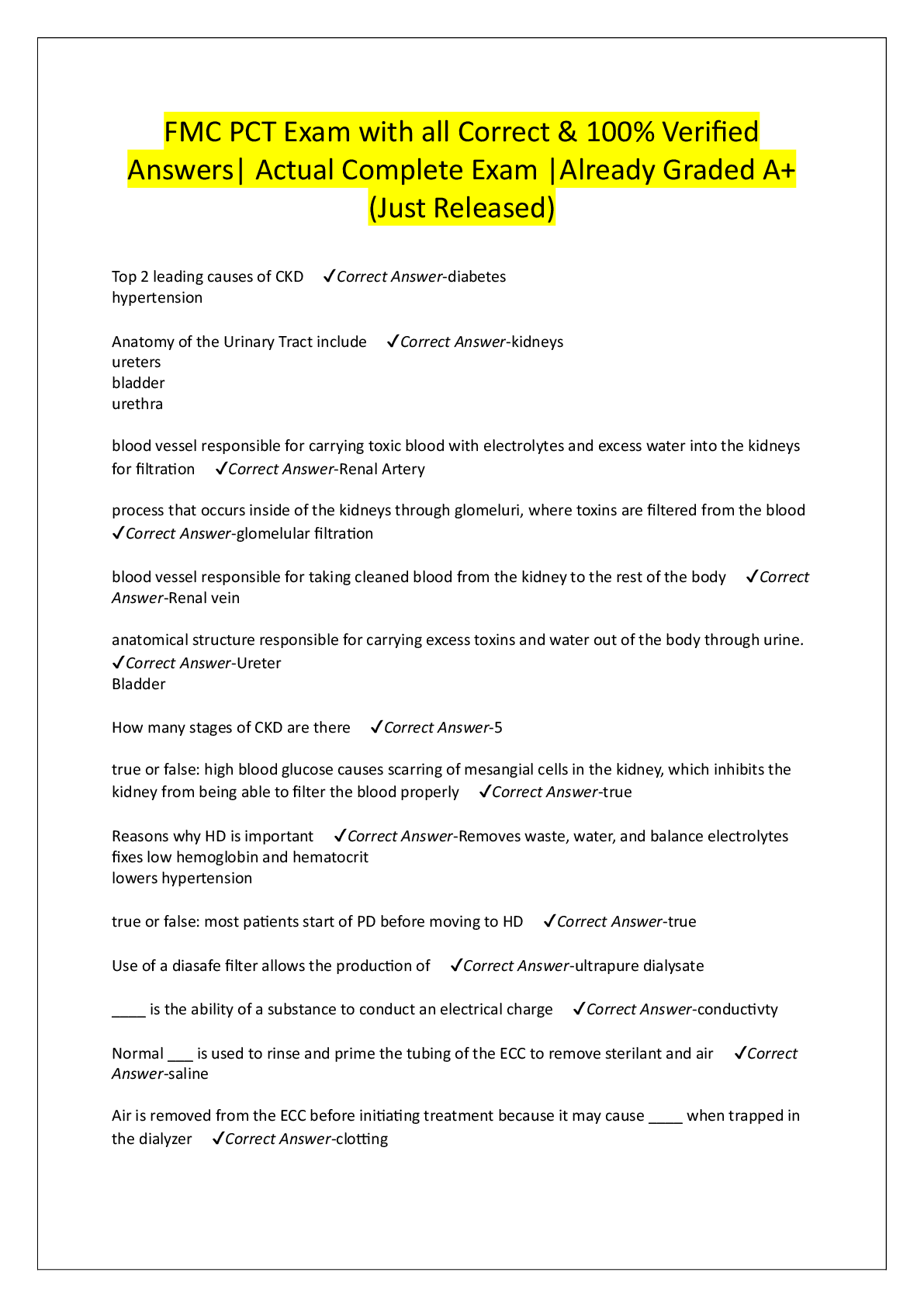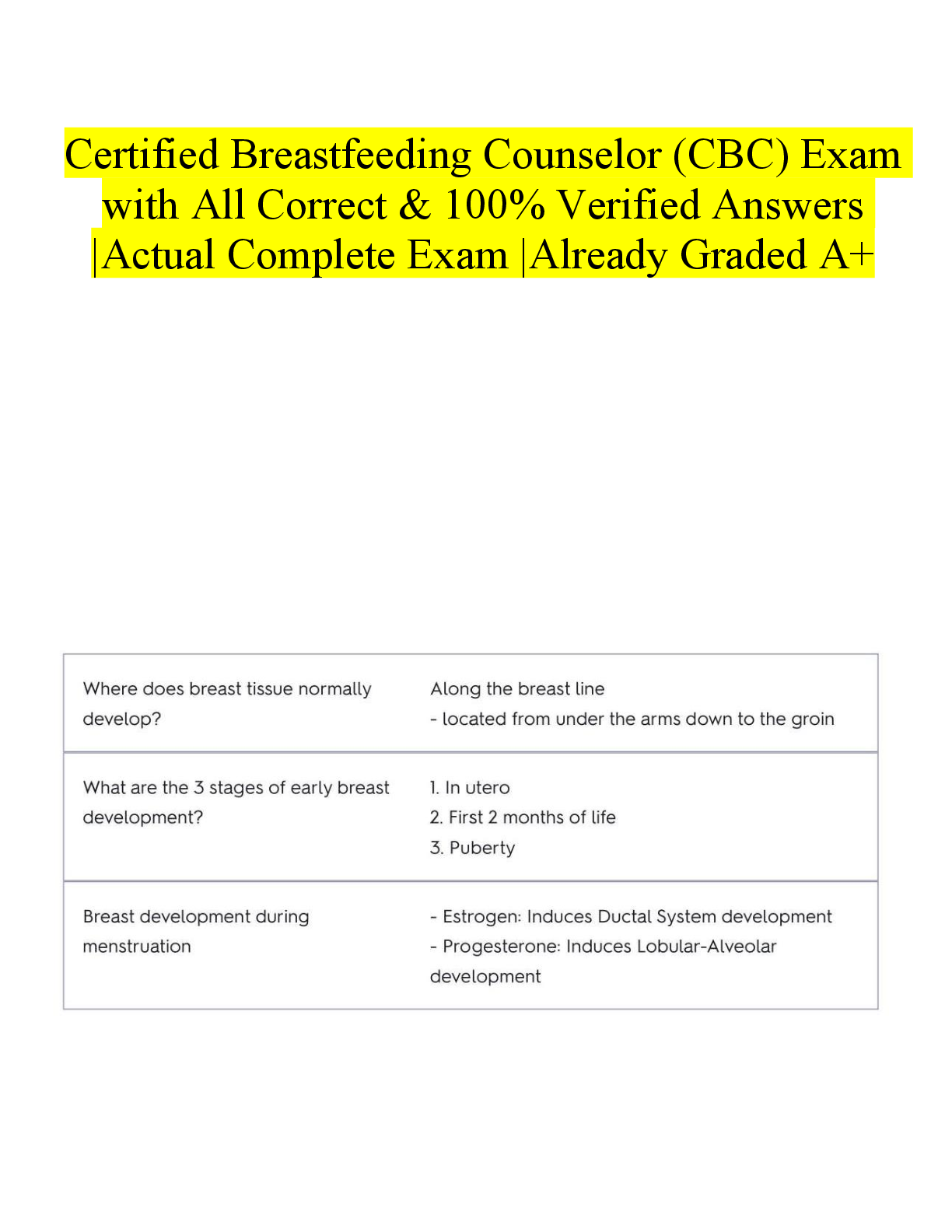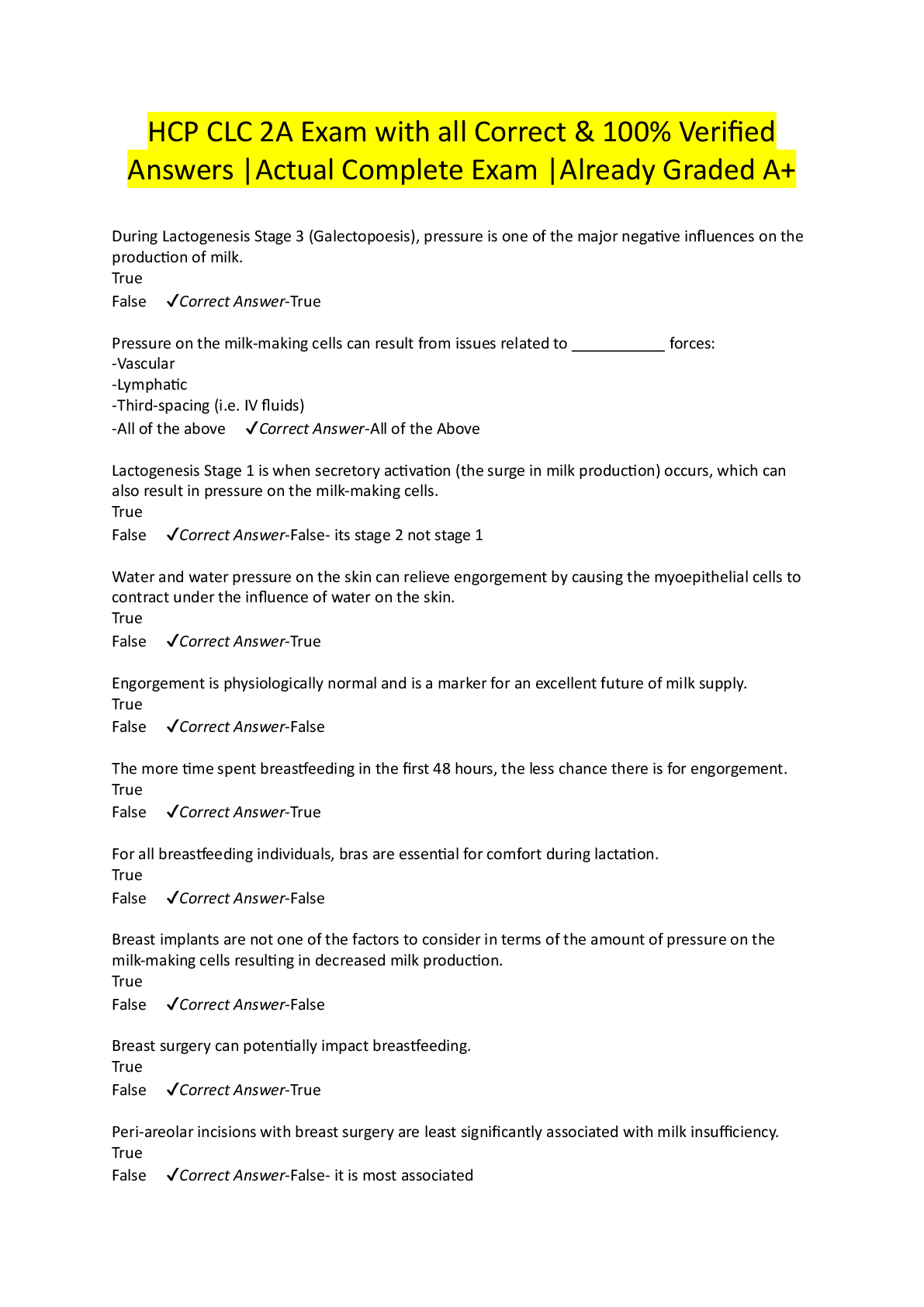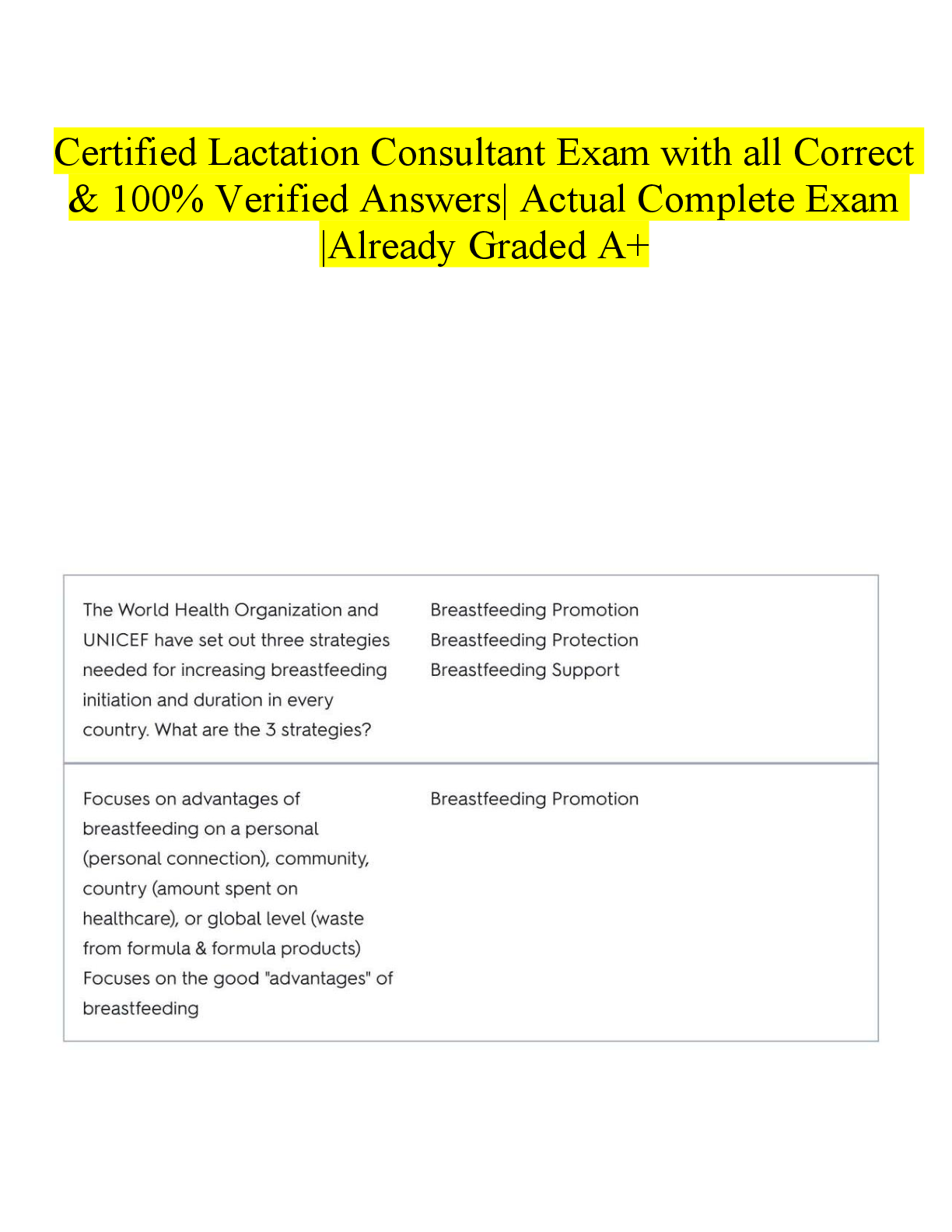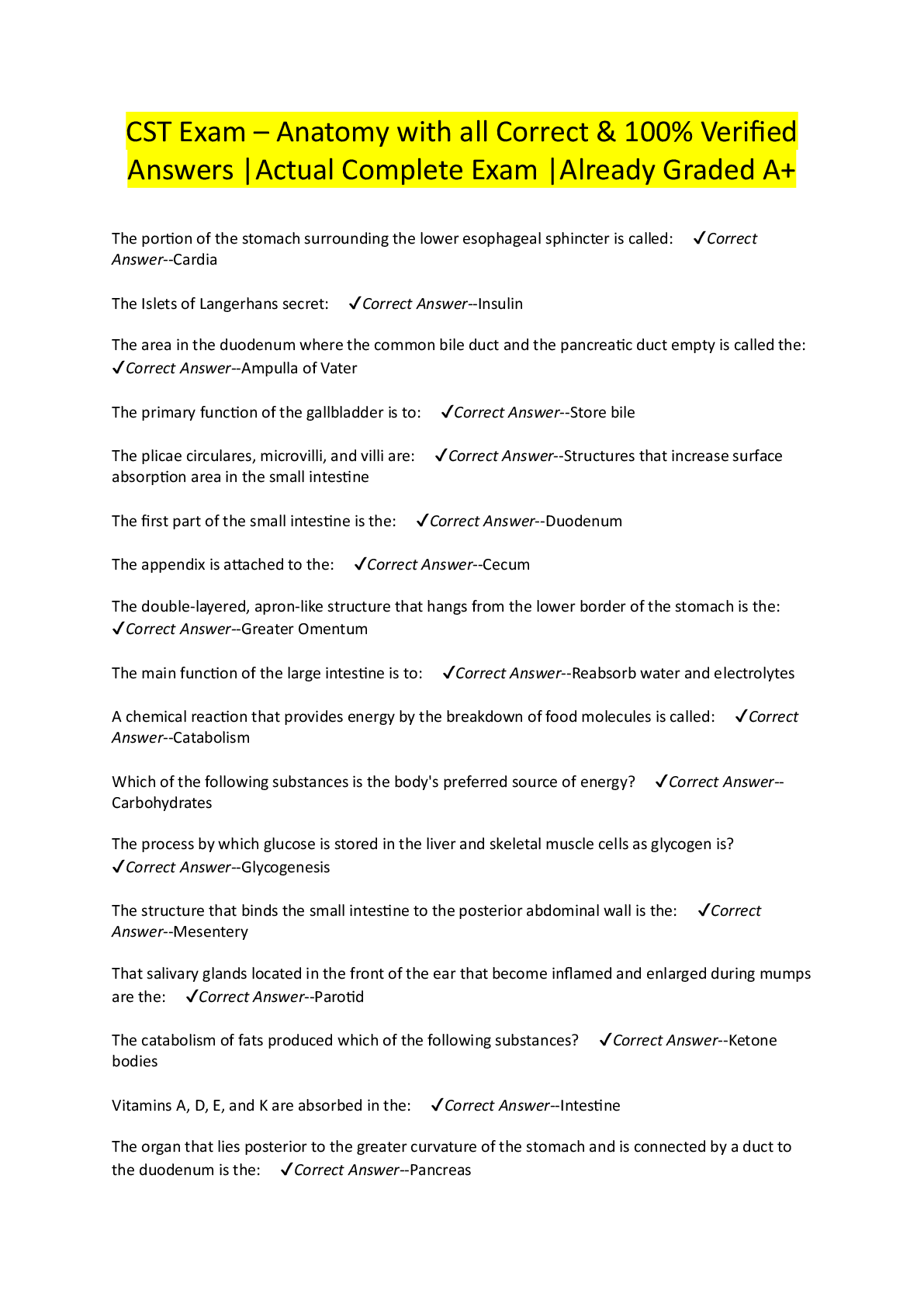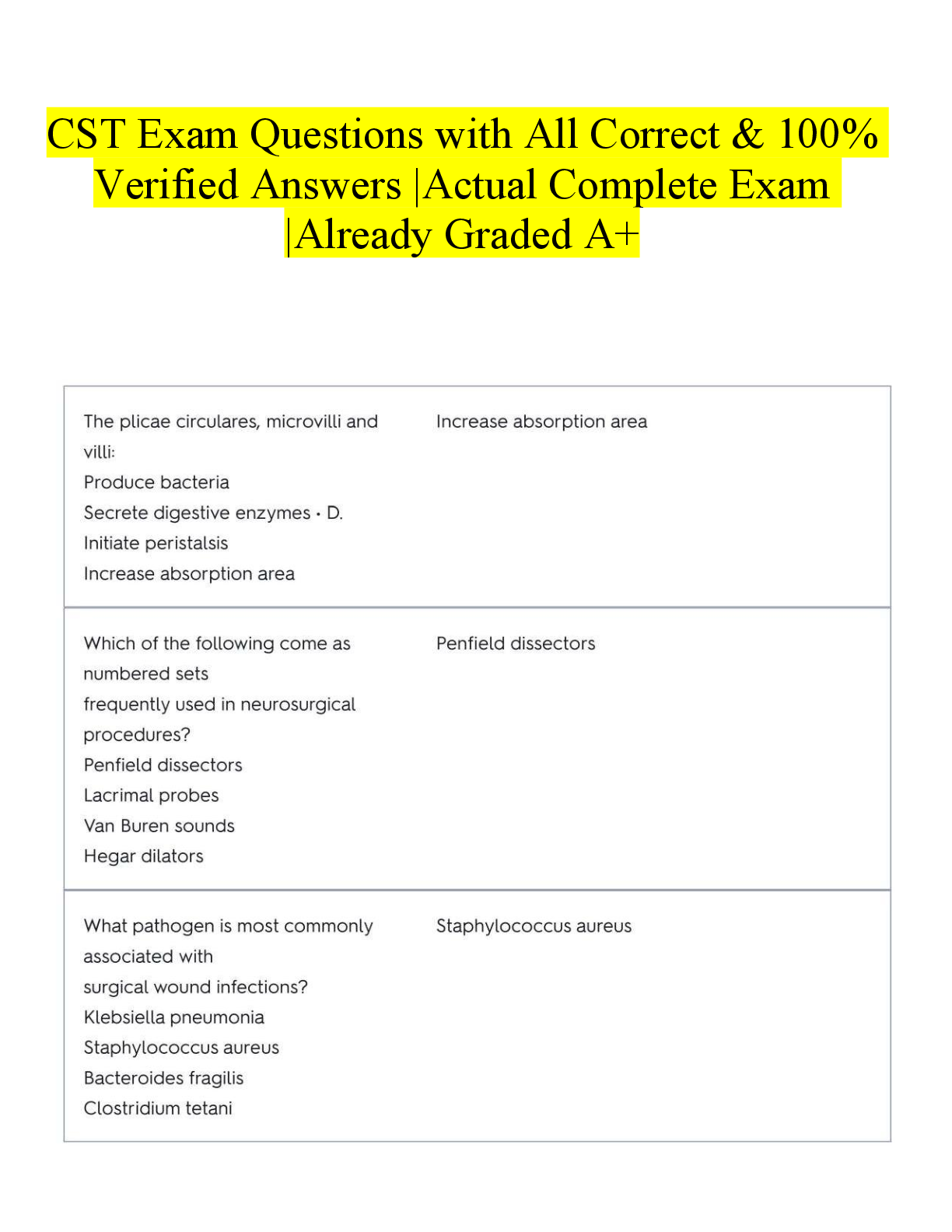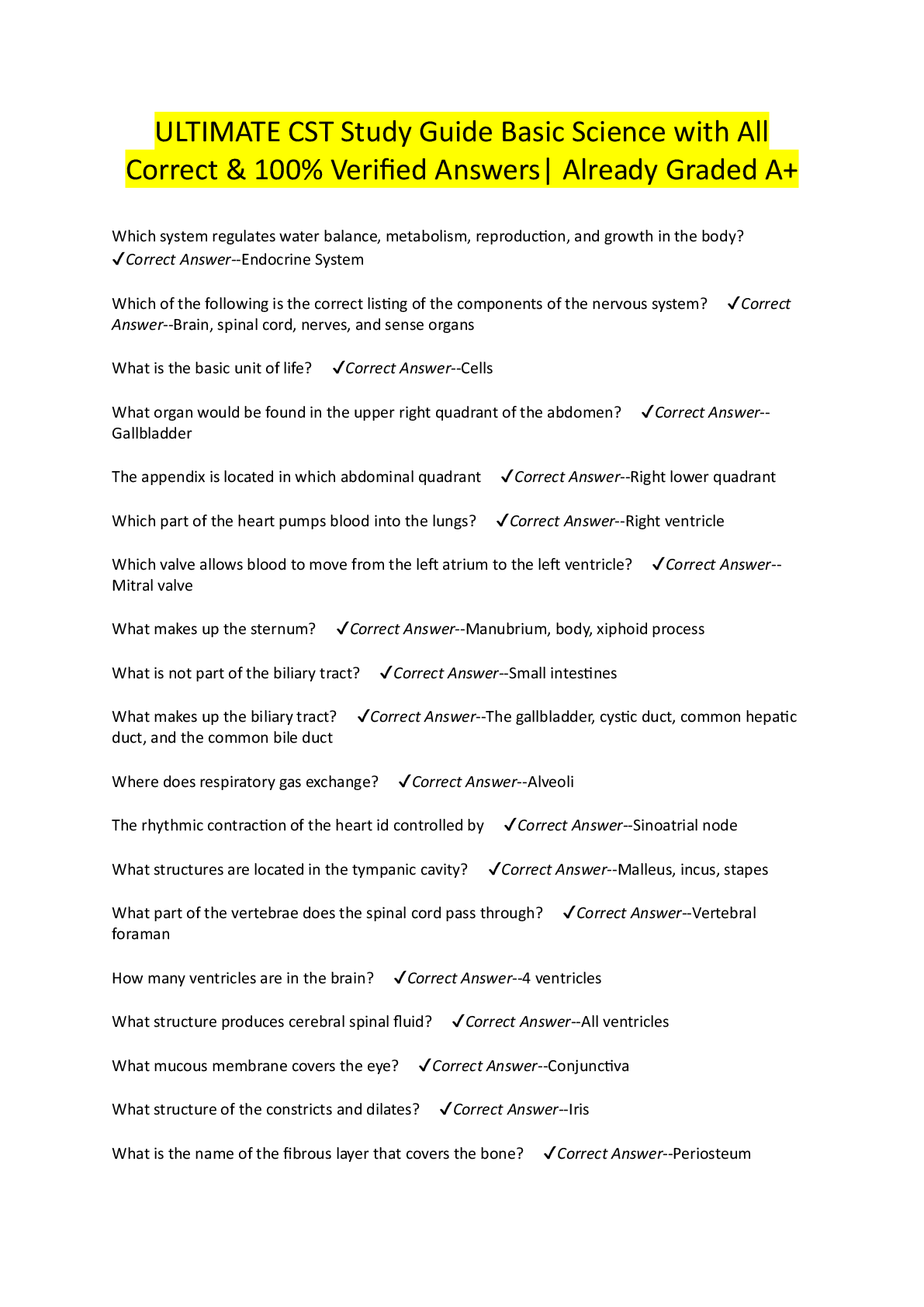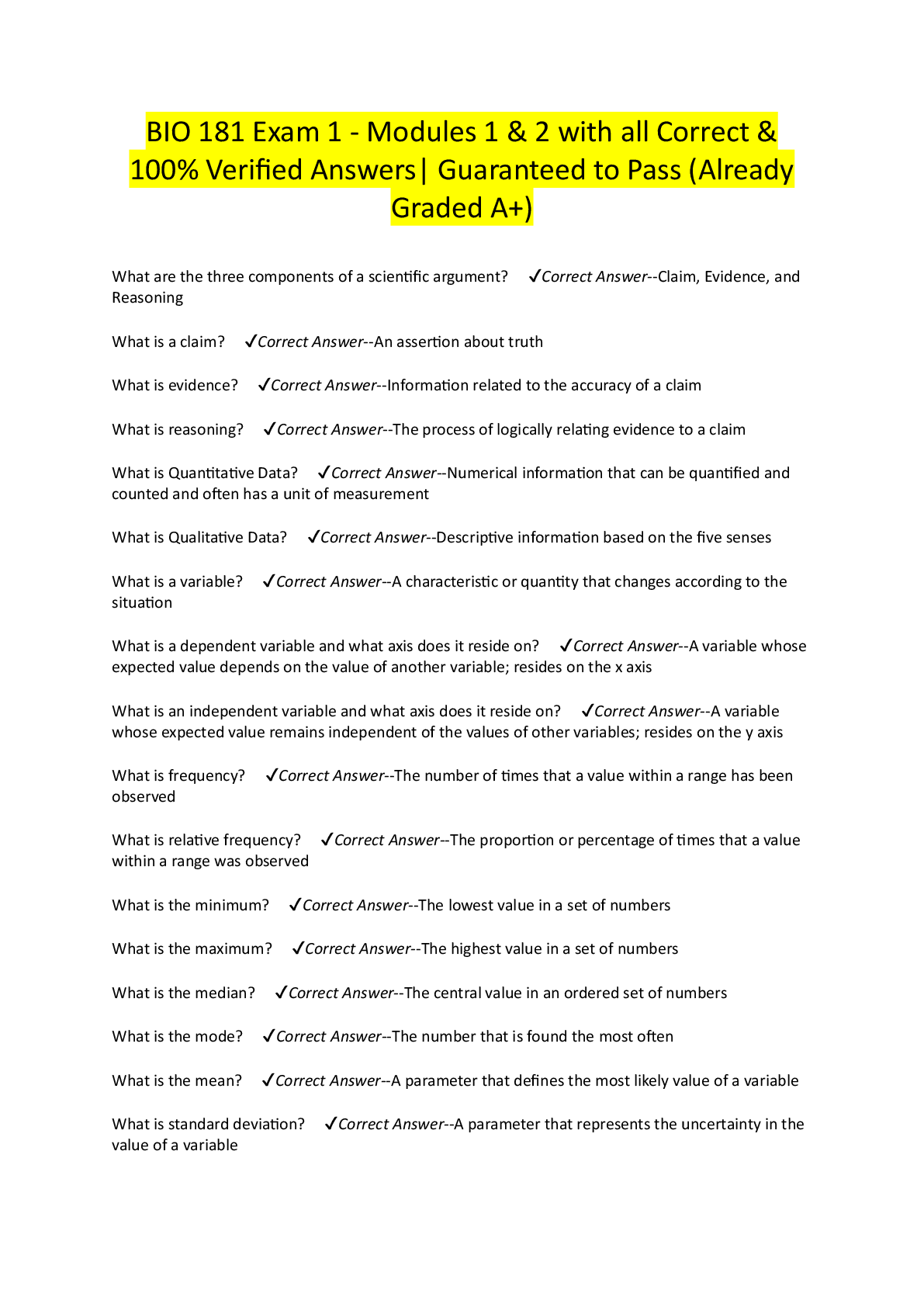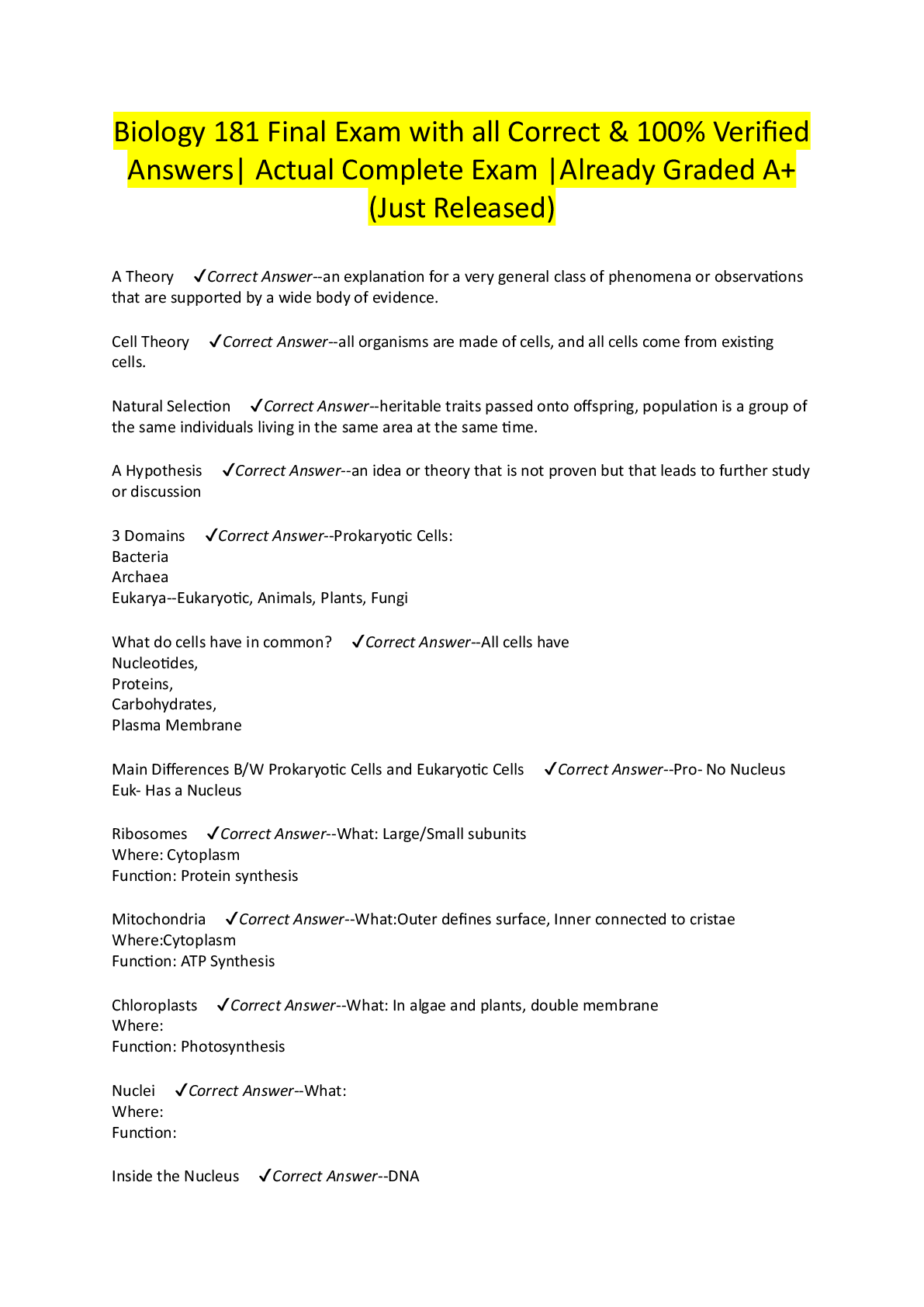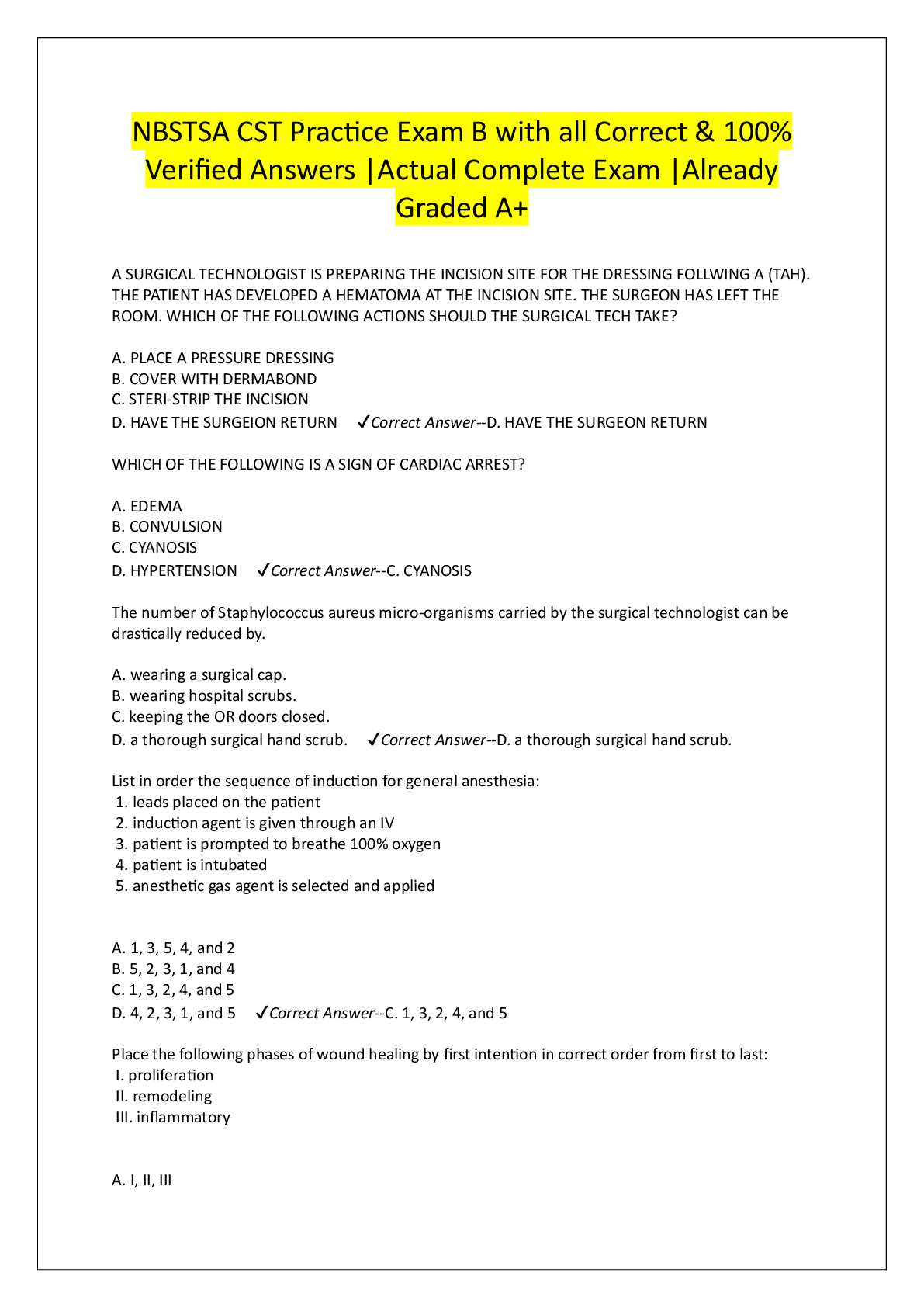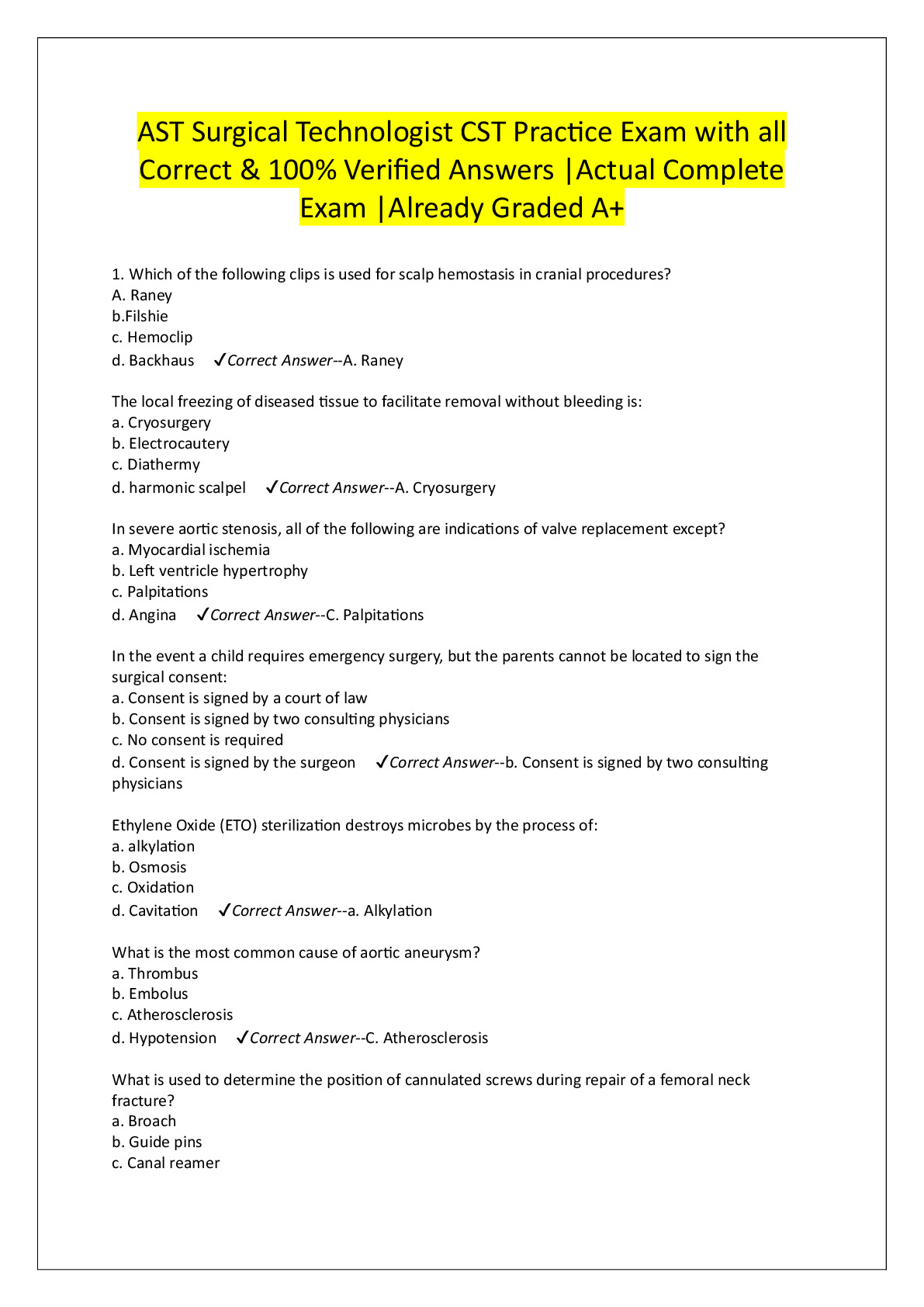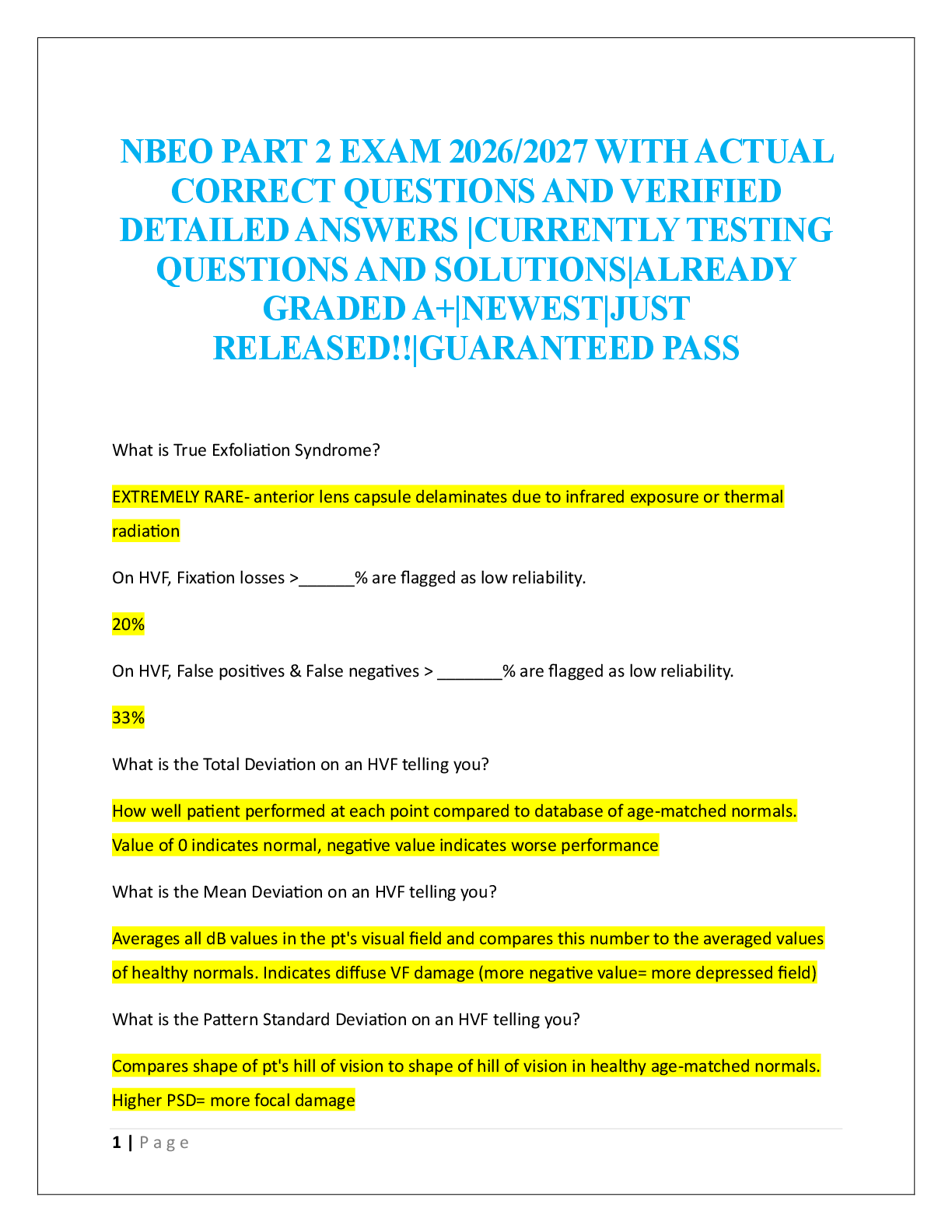Political Science > EXAM > POLI 330N Week 4 Quiz 2 – Question and Answers (2019) 100% Correct. (All)
POLI 330N Week 4 Quiz 2 – Question and Answers (2019) 100% Correct.
Document Content and Description Below
POLI 330 Week 4 Quiz (2) Question 1. Question : (TCO 3) Who generally belongs to interest groups? A multiplicity of people Primarily the middle class Almost exclusively the ... well educated Suburbanites and urbanites Points Received: 3 of 3 Comments: Question 2. Question : (TCO 3) Why did the 2010 healthcare reform bill contain no provision for public insurance options? The insurance industry blocked them. The people had no desire for a public option. Democrats paid more attention to the private option. Farmers, heavily invested in the insurance industry, blocked them. Points Received: 3 of 3 Comments: Question 3. Question : (TCO 3) Many interest groups are brought about by government, insofar as they are _____. associated with government programs funded largely by the government almost exclusively based in the nation’s capital usually formed by former politicians Points Received: 3 of 3 Comments: Question 4. Question : (TCO 3) Some interest groups maintain a low profile by promoting their objectives without _____ them. lobbying for fully funding advertising openly debating Points Received: 3 of 3 Comments: Question 5. Question : (TCO 3) By welcoming new groups into their ranks, parties _____. rob those groups of their individual interests and concerns give groups a pragmatic and psychological stake in the overall political system establish a monocultural dependence on the party system enhance political hegemony by disenfranchising voters outside of these groups Points Received: 3 of 3 Comments: Question 6. Question : (TCO 3) The American electoral system is based on the British “first past the post” (FPTP) system, named so because _____. third parties can “post” to earn representation major parties are subject to intense scrutiny by third parties it resembles a horse race; even a nose better wins it tends to promote more equal representation Points Received: 3 of 3 Comments: Question 7. Question : (TCO 3) Today’s voters tend to be _____ loyal to their parties compared to the past. more less similarly equally Points Received: (not graded) Comments: Question 8. Question : (TCO 3) _____ gives people a stake in election outcomes, and education raises levels of interest and sophistication. Life in the suburbs Family tradition Nationalism High income Points Received: 3 of 3 Comments: Question 9. Question : (TCO 3) What impact does beginning to pay taxes have on young people’s relationship to voting? Student Answer: It tends to make them more likely to vote, but less likely to work for a given campaign. Beginning to pay taxes tends to make them less interested in elections. It tends to make them more liberal in their voting. As they begin paying taxes, they become more interested in elections. Instructor Explanation: Chapter 12, page 191 Points Received: 3 of 3 Comments: Question 10. Question : (TCO 3) _____ regions may harbor economic and cultural resentments at being ruled by a distant capital. Urban Liberal Northern Outlying Points Received: 3 of 3 Comments: * Times are displayed in (GMT-07:00) Mountain Time (US & Canada) 1. (TCO 3) Who generally belongs to interest groups? (Points : 3) A multiplicity of people Primarily the middle class Almost exclusively the well educated Suburbanites and urbanites Question 2. 2. (TCO 3) What U.S. groups that are underrepresented by interest groups took to the street in inner-city riots in the 1960s, thus demonstrating what a group or groups might do when they cannot express their grievances through legitimate channels? (Points : 3) Poor people and Hispanic people African American people and women Poor people and African American people Hispanic American people and women Question 3. 3. (TCO 3) Bureaucracies have become big and powerful, developing _____ of their own. (Points : 3) candidates interests political parties media outlets Question 4. 4. (TCO 3) When interest groups approach the _____, they may not be in need of or want of a new law, but merely favorable interpretation of existing rules and regulations. (Points : 3) courts corporate world public administration Question 5. 5. (TCO 3) Which of the following is a function of political parties? (Points : 3) Parties limit voters’ choices by narrowing the playing field. Parties function as an input device, allowing citizens to get their needs heard. Parties decide the issues for televised political debates. Parties nominate candidates, thereby increasing voter efficacy. Question 6. 6. (TCO 3) _____ allow and even encourage parties to split. (Points : 3) Single-member districts “First past the post” systems Proportional representation systems Plurality systems Question 7. 7. (TCO 3) Today’s voters tend to be _____ loyal to their parties compared to the past. (Points : 3) more less similarly equally Question 8. 8. (TCO 3) Why do Americans vote so little? (Points : 3) Typically, given the enormous number of immigrants the United States plays host to, most U.S. nonvoters are poorly versed in the tradition of voting, and are therefore are largely unengaged by most elections. Typically, more than half of U.S. nonvoters say they that while they are interested in and satisfied with candidates, they still feel that their vote makes no difference or that none of the candidates are really good, and the two large parties may not offer an interesting or clear-cut choice. Typically, most U.S. nonvoters say they are uninterested in or dissatisfied with candidates, feeling their vote makes no difference or that none of the candidates are really good, and the two large parties may not offer an interesting or clear-cut choice. Typically, most U.S. voters find it impossible to convince others to vote, despite the fact that nonvoters are most likely to vote if convinced by those close to them. Question 9. 9. (TCO 3) What impact does beginning to pay taxes have on young people’s relationship to voting? (Points : 3) It tends to make them more likely to vote, but less likely to work for a given campaign. Beginning to pay taxes tends to make them less interested in elections. It tends to make them more liberal in their voting. As they begin paying taxes, they become more interested in elections. Question 10. 10. (TCO 3) Why is it that in most of the world, cities have higher turnouts than rural areas? (Points : 3) Partly because those who live rurally tend to feel less enfranchised Partly because urbanites have higher education levels on average Partly because people who have lived in the same place are less likely to vote than are transients or newcomers Partly because men tend to vote more than women [Show More]
Last updated: 3 years ago
Preview 1 out of 7 pages

Buy this document to get the full access instantly
Instant Download Access after purchase
Buy NowInstant download
We Accept:

Reviews( 0 )
$4.00
Can't find what you want? Try our AI powered Search
Document information
Connected school, study & course
About the document
Uploaded On
Nov 03, 2019
Number of pages
7
Written in
All
Additional information
This document has been written for:
Uploaded
Nov 03, 2019
Downloads
0
Views
216

